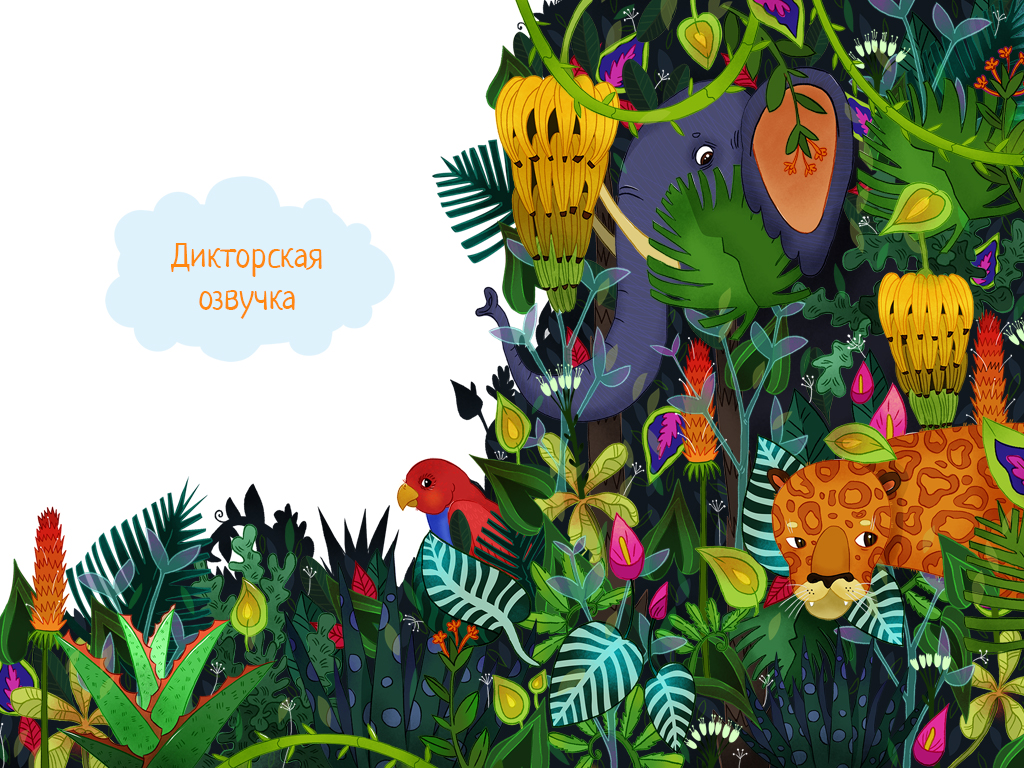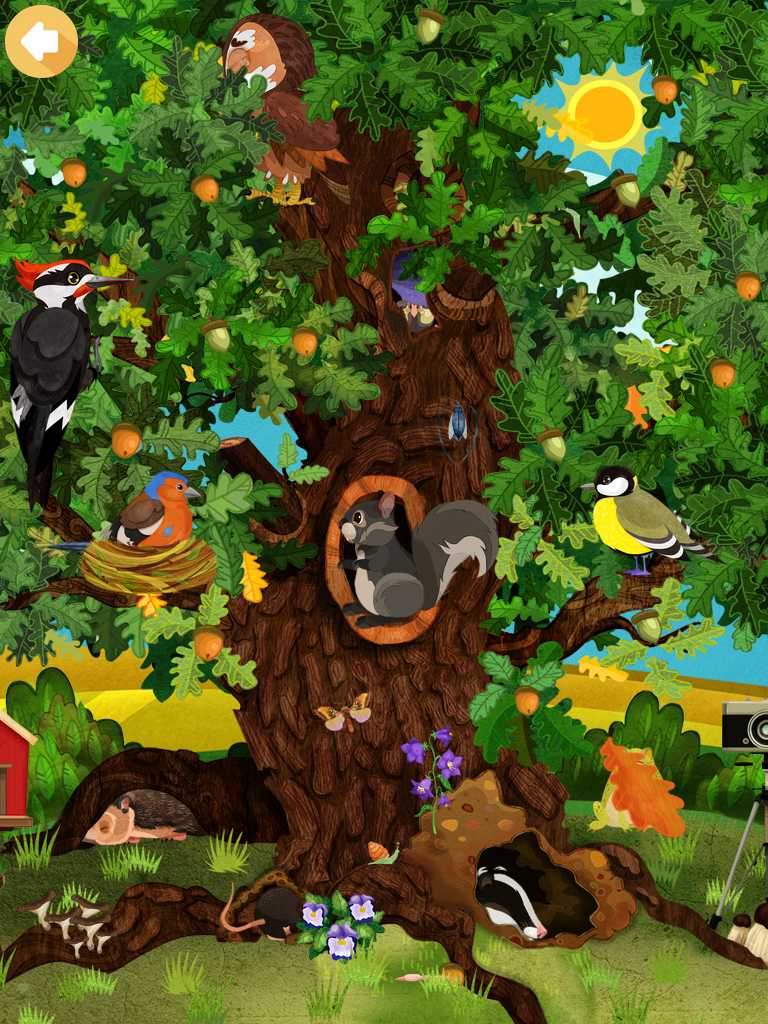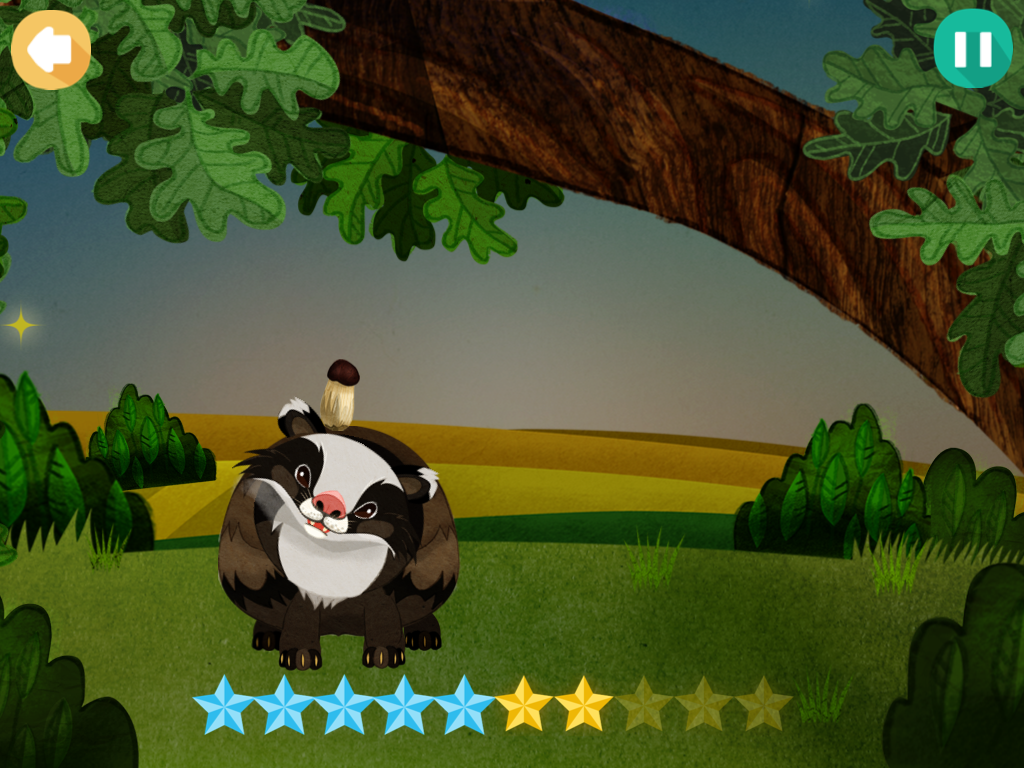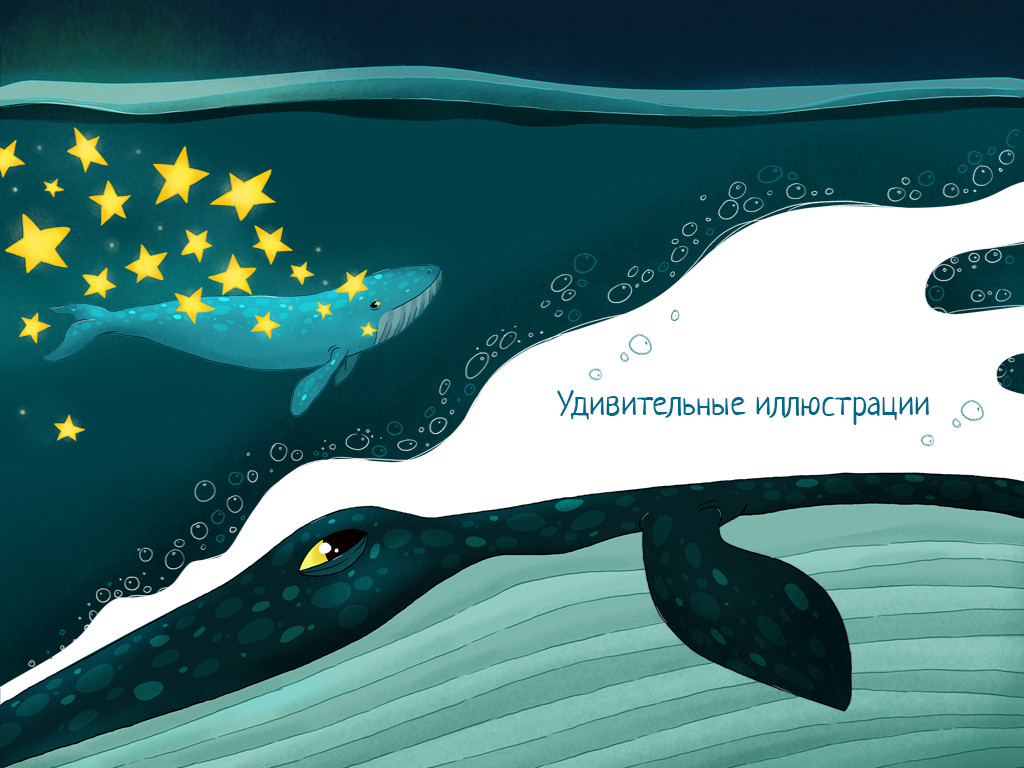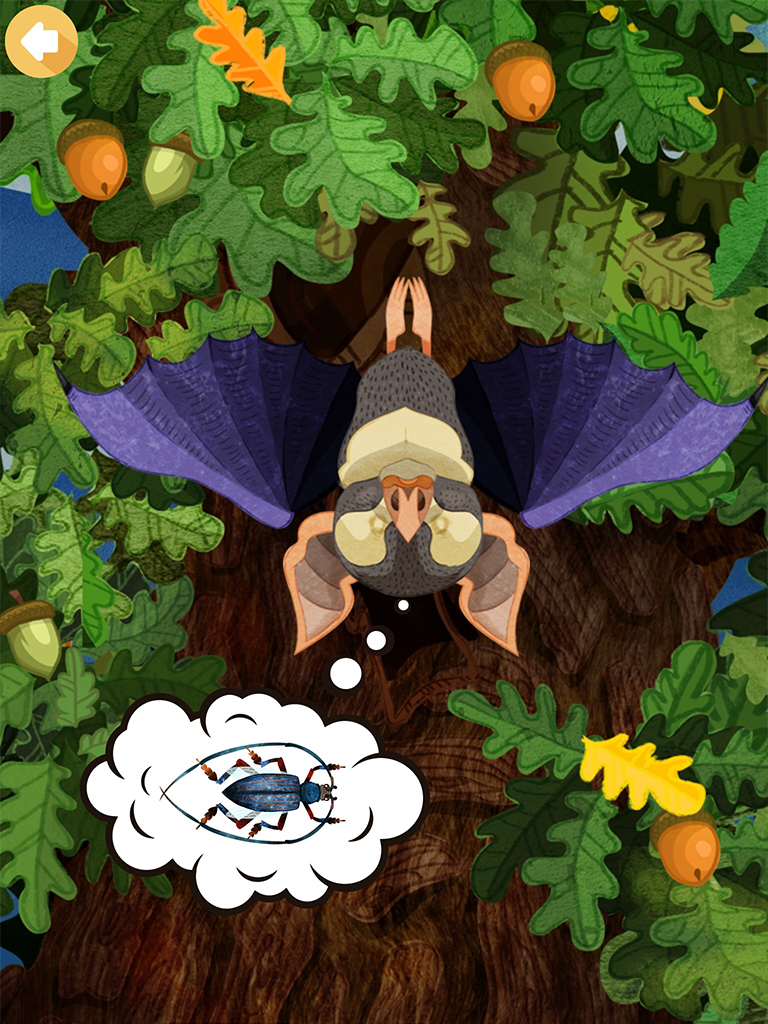We continue to publish materials in our “Who’s Who” series (recall, instead of posting game announcements from young and not only studios, we invite them to tell about themselves). This time we talked to the studio “For each other”, engaged in the development of games for children.

The questions were answered by Varvara Volodina, the head of the studio.
Varvara Volodina
App2Top: Hi! Tell me about your company. How did it all start?
Varya: Hello! Our studio is called “For each other”. I’m kind of in charge here, although everyone works together on projects anyway – illustrators, programmers and designers. There is no such “main-main”. We solve all the issues together.. But I’m in charge (laughs).
We met the guys… I don’t even remember anymore. Probably four years ago. We worked together in NARR8, in the non-fiction department. They published seven popular science magazines, weekly. After NARR8 closed, we decided to do children’s apps.
App2Top: The project was very cool, it’s a pity that everything ended like this.
Varya: Yes, he was cool. I still meet people who tell me: “You had such cool stuff, and the science pop was great!”. Indeed, the authors were wonderful there, and the guys were very purposeful, you will not meet such people anywhere
App2Top: If it’s not a secret: what went wrong with the previous project?
Varya: Honestly, I don’t know what went wrong. In order to give an assessment, you need to see the whole picture. And I was just the head of the animation department. The investments were large, the products were good.
The project was cool, everyone was talking about it. Presentations at major festivals, publications. Localization into 4 languages. Advertising all over the world. It’s a pity that it’s over!
App2Top: How did you come from science pop to children’s apps? Why didn’t you continue to do science pop?
Varya: After NARR8, we thought about what we would all like to do. We have already learned a lot about production, and we already had real knowledge that we wanted to apply. And everyone decided that children’s educational apps are what we are all ready to do.
When you look at children’s apps, you often see pale illustrations, sad tasks. This does not always happen, there are things that you look at and do not stop admiring.
In general, we wanted to do something really cool so that the child would open the application and be happy, learn without noticing himself.
Plus, popular science applications are a thin sphere, and not too profitable.
Arr2tor: And will you earn money on children’s apps?
Varya: Children’s applications are a rapidly developing and commercially more profitable sphere. In fact, we are also engaged in popular science applications. Our website says that we are “a studio of interactive applications for children and not only.” So, we have one app for adults in development – with a historical bias. But it’s too early to talk about him yet.
Arr2Tor: It always seemed to me that it was more difficult to make children’s apps than usual. Firstly, it is a big responsibility. And secondly, it is more difficult to work with children than with adults.
Varya: It’s hard because you have to do a lot of tests with both children and psychologists. The responsibility is really huge. It’s true. I have just given the text to the English translation. And the translator tells me: “I will definitely take an English-language editor, it’s such a responsibility! It’s for kids, for a reason! We need everything to be clear.” It’s all true.
But, on the other hand, if you have some norms and experience in your head, then you will not do anything wrong. After all, you see how children react. It is very important. We start any project by showing it to children. We look, write down what they say and how they react.
When a child takes an iPad and opens the app, it is immediately clear whether he likes it or not. It happens that he needs three to five seconds of parental attention, but this is the case with complex applications, when not just a fairy tale with interactive animation, but when you need to understand that this creature needs to be fed, and this one needs to be petted. That is, those applications where the logic and architecture are more complicated. But, in general, you still understand pretty quickly what the child wants and how he reacts.
Arr2Tor: And you don’t see a big tragedy in the fact that earlier a child was given cubes at two or three years old, and all the fine motor skills were actively developing, the imagination was developing. And now they give him an iPad and leave. And so the child interacts with this tablet, with a flat screen.
Varya: I’ve heard this opinion many times. In particular, when we released the first application, we made an advertisement in which we decided to fantasize about the fact that parents go on vacation and leave the child with an iPad. And I got a lot of negativity in addition to the positive, which was also a lot.
I realized what the problem was.
For some reason, society believes that if you leave a child with an iPad, then you are an irresponsible parent and want to get rid of the child. And he has no tactile sensations, and the screen replaces everything in the world for him. But it seems to me that this is not a problem of the iPad and not a problem of developers, but a problem of parents and upbringing. If you love a child, then you study with him. And he has no problem that he has not seen cubes in three years, but only an iPad. It’s the same toy as cubes, only more “influential”. There used to be cartoons, everyone ran as fast as they could to the TV to watch cartoons, they sat down and sat in front of it. Is this a TV problem? No. That’s your problem (laughs). Are you ready to spend your life in front of the TV or with an iPad, or are you a versatile person and your child is versatile. You play with him, you take him hiking. But when he’s sitting in the car and he’s bored, you give him a tablet. So he will have more fun and he will learn something new.
I emphasize once again: if you are a developed personality yourself and you are engaged with a child, then you will not only give him an iPad. There are a lot of games, there are books, too.
Arr2Tor: Good. This is the parental aspect. And if we take the aspect of the child? Here he sees the iPad. Does he want to interact later with real cubes, real colors? You probably have some kind of sociological experience in your experience, too. Watching, testing children. Do children cling to the iPad and want to work with something else after it? With real cubes, real soldiers, real colors?
Varya: When we first showed our apps to children, everyone was given an iPad. We asked one of our illustrators to paint the faces of all the children who want to. And they also called a child psychologist and a teacher to entertain those who are waiting for their turn. So, of course, they played with iPads for an hour or two, we saw how they reacted. But it all ended with the fact that happy decorated children of all ages ran after each other around the gazebo together with a psychologist, an illustrator and a teacher.
In general, I come back to the fact that if you plant a child with a tablet every day purposefully and do not give him anything else, then we will get the appropriate result at the output.
The fear is man-made – it has always been and always will be. But here you need to understand that if a child is only given paints, then he will also have some problems at school. It is obvious that mobile devices will continue to fill our lives – this is the future. Although, of course, it is not necessary that they own life. Moderation is needed in everything.
Arr2Tor: You said you were translating your apps. The question is: how much is the content being redone during translation? I have come across such an opinion that for our children we need to do more text and less vivid characters, and in the West – a minimum of text in applications and more of some bright characters. How big is the difference between Russian-speaking and Western users?
Varya: We are just starting with the Western ones. Therefore, I can only tell from previous experience. English – in any case, it is shorter, more concise. Therefore, in principle, there is less text.
Arr2Tor: And how many applications do you have now, how fast do you prepare them on average?
Varya: We started a year ago. They were determined for a long time. We came up with five applications. As a result, two have now been released, two more for the English market – for review. We’ll see when to release them, because it’s summer, and the dynamics of advertising shows that everyone is on vacation.
Arr2Tor: Two in a year is a lot! What is your team?
Varya: There are many of us. Eleven people. In this composition, they made: “Dubdom” – an eco-learning application; “Fairy Tales Inside” – an interactive collection of fairy tales, released jointly with the publishing house “Scooter”, and “Charms of Kharms” – a collection of poems by Daniil Kharms. There is also an application about colors and a few more games in development.
Arr2Tor: Is investing in an average-sized studio going to all together with your own money, or is it being done differently now?
Varya: Own investment. After some time, offers began to arrive. This topic is actually very popular now. There you had a question about the market and competitors…
There’s some kind of frenzied boom right now. Everyone does the same thing. I literally have an ad hanging at the entrance: “Let’s make an interactive application” (laughs). There are a lot of tools for this. SpriteBuilder’s, a bunch of everything.
Arr2Tor: A year or two ago, when I talked to the developers of children’s apps, they told me that here, you can’t earn a damn thing, we are actually engaged in charity. How relevant is it now?
Varya: I think this is a promising direction, although everything is slow and difficult on the Russian market. In America and in China – and in the world in general – this sphere is developing very rapidly.
Arr2Tor: Are you now paying off, working in the Russian market, or are you going to zero?
Varya: We just went on sale in March. It’s too early to talk about payback.
Arr2Tor: But are there any sales going on?
Varya: Yes, sales are going on, they are heated up by the press. It’s nice when you send screenshots and promo code of “Fairy Tales Inside” to the guys from workingmama, and they say: cool, let’s hang you. Come on!
Sudden jumps in downloads occur with some cool PR campaigns. Contests, festivals, lectures. Book draws and distribution of promo codes.
Arr2Tor: Where is this happening? Pranks on social networks?
Varya: On social networks, at festivals, there was a children’s book fair in GUM… a large passability. Despite the summer, a lot of people have come. Promo codes ran out very quickly.
Arr2Tor: In your experience, these reviews in the press that give stable downloads… Is it tens, hundreds a day?
Varya: I’m not going to tell you the numbers directly. This is not a time period that we can talk about. We need at least a year. Then, when you release the next project, the dynamics immediately increases automatically. You give cross-advertising, and the applications work for each other.
Arr2Tor: Did you buy any traffic? Or do you still have a paid app and you don’t want to buy traffic?
Varya: We haven’t bought traffic yet. But I think we will do this in the American market.
Arr2Tor: Are you entering the Western market yourself? Not looking for a publisher that minimizes risks?
Varya: We have some ties on Kharms, which I can’t talk about yet. There are “pushy” applications that lead to the top, and there are those that sit on the tail. Here Charms of Kharms will be “pushev”, and “Dubdomichik” will sit on his tail. And in Russian, on the contrary, fairy tales pushed everything. You just go crazy from the volume (laughs). Everything is ready, but when you sit down at the end and start checking everything, all icons, archives, test…
Arr2Tor: Do I understand correctly that this project is no longer about business, but about the self-realization of the team?
Varya: Self-realization was initially, yes. But now, in principle, we do not have a person in the team who would not see this as a business of the future.
Judging by the fact that there are companies that make good money on this, it is necessary to understand what to do and how to act in a particular situation in order to reach these companies.
There is such an application, Albert. When I saw him, I thought that I only want to do such things. So Fingerlab released only one application, and nothing else. Although the application is a cash register. It came out a couple of years or three years ago. And still keeps in the tops. It’s slowly slipping, but it’s still there. Such apps as “Good Night” – they have not left the top for several years at all.
Arr2Tor: Because they are good.
Varya: Because they are good. Because they are high-quality, made with a soul. When my illustrators and designers open them, they say “Oh-oh-oh-oh-oh-oh!”. That’s all. They don’t say anything else. That’s the way to do it!
It is clear that we are still focusing on abroad. To Germany (Fox&Sheep), Great Britain (Bold Creative), Canada (Sago sago), America (Originator, Toca Boca). Toca Boca – visually cool. But they are a little out of my taste style. But I adore them – for the architecture, for the idea, for the laboratory. It seems to me that in a good application, like in a funny movie, there must be good jokes that children remember.
Arr2Tor: Your company is a year old. What would you note the main difficulties and turning points that were the hardest to go through? How would you advise companies that follow in your footsteps to bypass them?
Varya: It seems to me that all the difficulties are ahead! But in general, the hardest thing is to make people believe that what you are doing is cool. You’re like Amerigo Vespucci and Columbus, shouting: “Guys, we’re going there!”.
Arr2Tor: How did you motivate your team?
Varya: They were motivated. But when you start working on something, you have to decide which way to go and how to do it. And it is very difficult, when you get the first feedback, to restrain yourself and perceive everything adequately. Criticism should be taken adequately. The most difficult thing is to survive criticism, and then you see for yourself. After you’ve already been told to your face: “Guys, your buttons are cool, everything is drawn cool, but it’s not clear what you need to click on this button”! And you think – “How so?”.
And they tell you different opinions. The examination is large, up to 50 people. Ten of them say that they don’t want to press the button, and twenty say that they want to. The others don’t say anything about the button at all. That is, it is not clear whether they clicked or not.
Arr2Tor: And what to do?
Varya: Do it for those who didn’t press the button. It’s better to make it simpler and clearer. All top applications say this: you don’t need to do super-complicated. We need to do it cool and clear. So that you don’t spend an hour and a half looking for a manual, and then you can’t figure out what’s going on. On the other hand, with the same “Living corner” – when I opened it for the first time, I did not look at the manual. It was interesting to figure it out myself. So after a month and a half I went into the manual and found a couple more things. It seems to me that if I climb again, I will find a couple more animations that I didn’t dig up. This has its own charm.
Arr2Tor: Listen, what kind of duration should children’s apps have in general? Is it regulated somehow?
Varya: No, it’s not regulated. A child, probably, like any adult. If you didn’t get him carried away in the first two seconds, he’s not interested anymore.
Arr2Tor: Well, how much should he do? A few years ago there were big disputes, especially in the gaming industry. Some said that six hours for a game was not serious. Others, on the contrary, that the game should give everything at once in three hours. Are there any rules?
Varya: There are no rules. In any case, it depends on the fascination. It is somehow impossible to limit this, because you can play games in a circle. Moreover, the child remembers better when he goes through the game several times. We have a game in “Fairy Tales” – with constellations. It can be passed and passed. At some point, you’ll probably get tired of having to do the same things. But you will remember what the constellations look like.
Arr2Tor: The last question is about pricing. How do you decide how much the application should cost, what do you proceed from? How much is a parent willing to pay for a game for their child?
Varya: Here we need to start with the fact that we have a crisis in our country, and now we have two choices. In general, it is considered that 2-3 dollars, that is, what used to be 150-200 rubles – this is the normal price for the application. Buying it, you see that it doesn’t cost three kopecks, which means that the guys somehow tried, they did something fine.
We decided to go the other way and sell everything for a dollar. Our products on the international market will be cheap. But on the other hand, we will have more coverage. Nobody feels sorry for a dollar.
Arr2Tor: Some make games for children shareware. How do you feel about this?
Varya: I have an idea to make some free apps. Although it’s too early to talk about them yet.
Arr2Tor: And they will be with IAP?
Varya: They will generally be free.
Arr2Tor: Don‘t you want to implement microtransactions in your projects?
Varya: We probably will. But we are not ready now. We are more interested in localization. In general, it seems to me that free elements are cool. Greater audience reach.
Arr2Tor: How did the team work, and here is a free product?
Varya: This product was originally “sharpened” for free.
I have a two-fold attitude to additional purchases. There are many applications where the user can buy something. On the one hand, it’s cool when you like something and you can prolong the pleasure. And on the other – it’s such a nasty wiring! I personally would be ashamed to force my parents to buy more beaver in DubDom or some kind of fox! But business is business. But we don’t do that yet. Indeed, 60 rubles is not such a lot of money. If you bought an iPad, then you can afford to spend a dollar.
Thanks for the interview!
Interviewed by: Alexander Semenov
Transcribed by: Irina Smirnova


